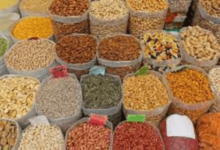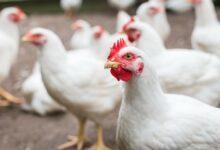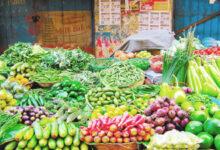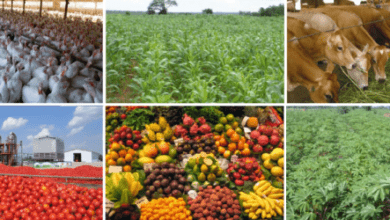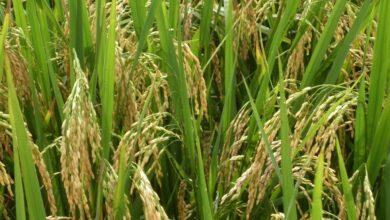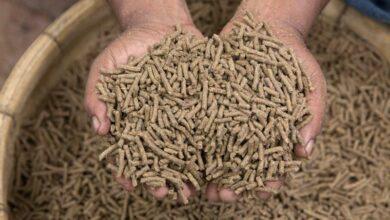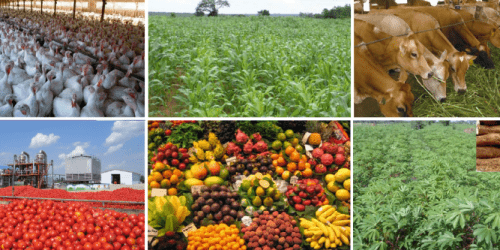
10 Environmental Factors Affecting Agricultural Production In Nigeria
Agricultural production in Nigeria is a vital aspect of the country’s economy, as it employs a significant portion of the population and accounts for a large portion of the country’s exports. Nigeria is known for producing a variety of crops, including yams, cassava, rice, maize, and sorghum, as well as cash crops such as cocoa, rubber, and palm oil.InformationGuideNigeria
However, despite its potential, Nigeria’s agricultural sector has been plagued by a variety of challenges, including poor infrastructure, a lack of access to credit and markets, and a lack of technological innovation. Despite these challenges, there have been recent efforts to modernize and improve the sector, including government initiatives to boost investment and support small-scale farmers.
👉 Relocate to Canada Today!
Live, Study and Work in Canada. No Payment is Required! Hurry Now click here to Apply >> Immigrate to CanadaRead Also: Environmental Factors Affecting Agricultural Production in Nigeria
What is Agricultural Production?
Agricultural production refers to the process of growing and harvesting crops, raising animals for food and other products, and related activities such as processing and packaging of agricultural products. It includes both subsistence farming and commercial agriculture.10 Importance Of Peace In Nigeria
The goal of agricultural production is to produce enough food and other products to meet the needs of a population, while also ensuring sustainable use of resources such as land, water, and energy.
Read Also: 9 Political Factors Affecting Business In Nigeria
Types of Agricultural Production in Nigeria
Agricultural production in Nigeria includes:10 Environmental Factors Affecting Agricultural Production In Nigeria
- Crop Production: This includes the cultivation of staple crops such as cassava, yam, rice, maize, and sorghum, as well as cash crops such as cocoa, rubber, palm oil, and groundnuts.
- Livestock Production: This includes the raising of animals such as cattle, sheep, goats, pigs, and poultry for meat, milk, and eggs.10 Importance Of Nomadic Education In Nigeria
- Fishing: This is the process of farming fish in freshwater and saltwater ponds, rivers, and streams.
- Forestry: This includes the cultivation of timber and non-timber forest products.
- Agro-processing: This includes the processing of agricultural products such as palm oil, groundnut oil, and rubber into various products.
Advantages of Agricultural Production in Nigeria
Abundant land and favorable climate for agriculture: Nigeria has a large land area and a tropical climate that is well suited for the cultivation of a wide variety of crops.
- Diversified Agricultural Production: Nigeria is known for its diverse agricultural production, which includes crops such as cassava, yam, rice, cocoa, palm oil, and rubber.
- Rich Soil: Nigeria has a variety of soil types that are suitable for different types of crops. The country is known for its rich, fertile soil in the southern region that is ideal for growing cash crops like cocoa and rubber.
- Large Domestic Market: Nigeria has a large population of over 200 million people, providing a ready market for agricultural products.200 Romantic Love Message
- Export Potential: Nigeria’s agricultural products are in high demand internationally, particularly in neighboring countries, providing opportunities for exports and foreign exchange earnings.
- Government Support: The Nigerian government has been actively promoting and supporting the agricultural sector through various policies, programs, and initiatives.
Read Also: 12 Factors that influence the level of Employment in Nigeria
Agricultural Production and the Nigerian Society
Agriculture has been a major part of Nigeria’s economy for centuries. The country is known for producing a variety of crops, including yams, cassava, rice, corn, sorghum, millet, plantains, beans, cowpeas, and peanuts. Historically, subsistence farming was the norm in Nigeria, with small-scale farmers producing crops for their consumption and local markets. However, with the arrival of European colonizers in the late 19th century, large-scale commercial farming was introduced, with a focus on cash crops such as palm oil, rubber, and cocoa.
👉 Relocate to Canada Today!
Live, Study and Work in Canada. No Payment is Required! Hurry Now click here to Apply >> Immigrate to CanadaThese cash crops were primarily grown for export and were a major source of revenue for the colonial government. After Nigeria gained independence in 1960, the government continued to promote cash crop production, but also encouraged the development of food crops to meet the needs of the growing population. Today, agriculture remains a major sector of the Nigerian economy, but the country still struggles with issues such as land degradation, inadequate infrastructure, and a lack of access to modern technology and financial services.
Read Also: 10 Factors Affecting Gender Equality in Nigeria
State the Environmental Factors affecting Agricultural Production in Nigeria
- Climate: Nigeria’s tropical climate is characterized by high temperatures and high humidity, which can be challenging for some crops. The rainy season, which typically lasts from April to October, can also cause flooding and landslides, which can damage or destroy crops. Additionally, prolonged dry spells can lead to drought and poor crop yields.
- Soil: The soil in Nigeria is diverse and ranges from sandy to clayey to rocky. However, much of the soil is nutrient-poor and has a low water-holding capacity, which can make it difficult for crops to grow. Additionally, overuse of the land for agriculture can lead to soil erosion and degradation.
- Pests and Diseases: Pests and diseases can have a significant impact on agricultural production in Nigeria. Common pests include termites, caterpillars, and locusts, while common diseases include cassava mosaic virus, yam mosaic virus, and tomato leaf miner. These can cause significant damage to crops, leading to reduced yields and even total crop loss.105 Good Morning Love Messages
- Access to Resources: Many farmers in Nigeria have limited access to resources such as fertilizers, pesticides, and irrigation systems. This can make it difficult for them to improve crop yields and make farming a more profitable endeavor. Additionally, farmers may not have access to credit or other forms of financing, which can make it difficult for them to invest in their farms.
- Water: Water availability is a critical factor in agricultural production, with rainfall being the main source. The variability of rainfall patterns can significantly affect crop production.
- Topography: The physical features of the land such as slopes, elevation and aspects can impact the type and amount of crops that can be grown.JAMB Portal
- Market Access: Access to markets is a major challenge in Nigeria, with poor road networks and inadequate transportation infrastructure making it difficult for farmers to sell their produce.
- Inputs: Availability and cost of inputs such as seeds, fertilizers, pesticides, and equipment can impact agricultural production.
- Labor: Availability and cost of labor are important factors in agricultural production, with a shortage of labor often leading to increased production costs.JAMB Portal
- Natural Disasters: Natural disasters such as floods, droughts, and earthquakes can greatly impact agricultural production.
To address these environmental factors, farmers need to have access to the resources they need to improve crop yields, such as fertilizers, pesticides, and irrigation systems. Furthermore, providing extension services and training to farmers can help them learn how to manage pests and diseases, improve soil health, and adapt to changing climate conditions. Additionally, policies and programs that promote sustainable land use, such as agroforestry and conservation agriculture, can help to mitigate the negative impacts of agriculture on the environment and improve long-term agricultural productivity.NYSC Portal
Read Also: 10 Factors Affecting Girl-Child Education in Nigeria
Conclusion
Agricultural production in Nigeria plays a significant role in the country’s economy, providing employment and food security for a large portion of the population. However, the sector faces challenges such as inadequate infrastructure, lack of access to modern technology, and poor government policies. Despite these challenges, there is potential for growth and development in the agricultural sector with proper investment and implementation of effective policies.
Check JAMB Result
Check and Confirm: How much is Dollar to Naira
